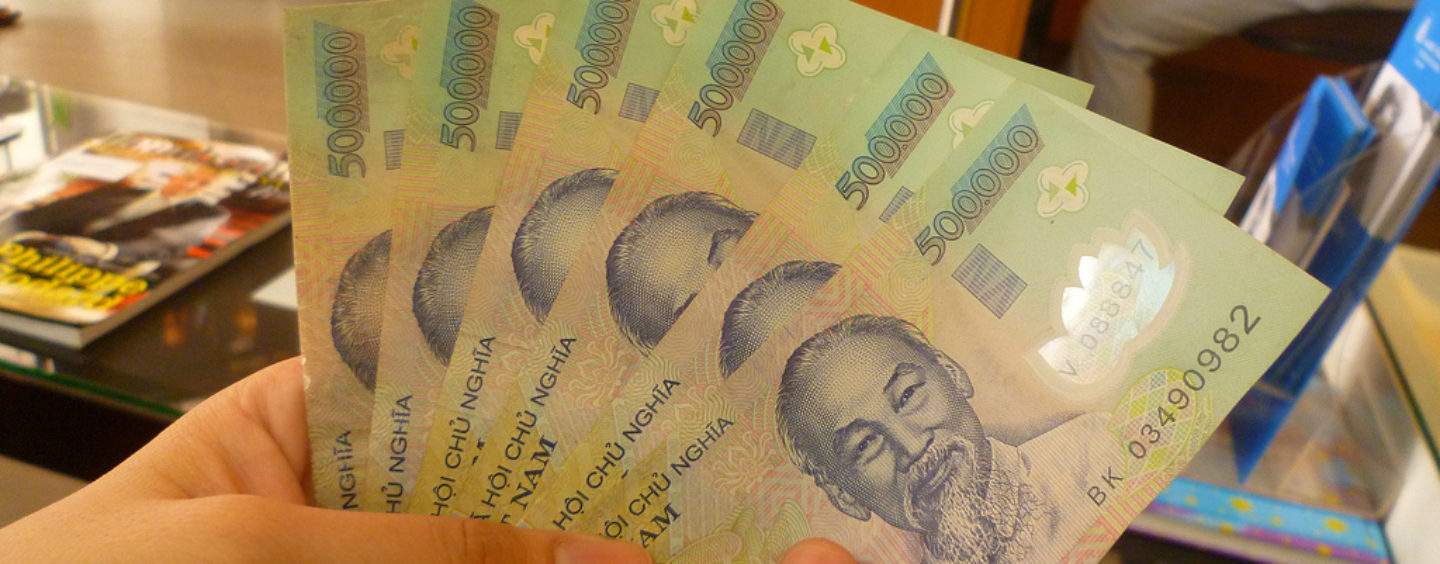Despite Vietnam’s high smartphone and mobile Internet penetration rates, consumer adoption of fintech solutions remains low with cash-payment habit being hard to change.
“Vietnamese, including the unbanked, have already used their mobile for many activities in their everyday life, but not yet so much financial activities,” Nam Tran, co-founder of CEO of mobile payments startup Moca, told Fintechnews.sg.
“The remaining challenges to realizing the potentials [of mobile for financial inclusion] are less about technologies, but more about understanding market dynamics and driving adoption.”

Nam Tran, Chairman and CEO of Moca
Tran’s company Moca has developed a solution for mainstream retail payments that enables mobile payments from all types of bank cards. “That’s a key difference between Moca and other services providers who focus a lot on the pre-load digital wallet,” Tran said.
The Moca payment platform enables cardholders to pay with their mobile, while allowing retailers to accept mobile payment without a POS terminal. This business model requires the company to have a strong network of partner banks, and as of now, Moca is connected to eight banks, including some of the largest ones.
“We’ve been lucky that our partner banks have embraced our product and our partnership model,” he said.
Data from the World Bank’s Global Findex database suggest that as of 2014, only one third of adults in Vietnam had a transaction account with a formal financial provider, far below the regional average of 69%.
For fintech startups and entrepreneurs in the country, the large pool of unbanked people, combined with the country’s high mobile adoption rate of 98%, represents an enormous opportunity.
“From a technology perspective, the potentials of mobile for financial inclusion are fairly clear, given success stories elsewhere in payment, in lending, in insurance,” said Tran.

Sy Phong Bui, CEO and founder of OnOnPay
Sy Phong Bui, CEO and founder of OnOnPay, agrees. The potential of mobile-based financial services is clear, but Vietnamese still prefer transacting using cash for the convenience as well as for the simple fact that the overall economy run majorly on cash.
Bui’s company OnOnPay provides financial services for people on their phones. These services leverage telecommunication channels to reach as many people as people.
“Starting with providing airtime redistribution network, we are now layering new products on top this,” Bui said. “We are aiming to help people to pay more conveniently, manage their financials more effectively in a more secured environment.”
Yet, there is still a long way to go before Vietnam catches up with countries like China and India, where the populations have embraced and adopted fintech solutions. And for companies like OnOnPay and Moca, it’s all about building trust.
“Service providers have to build trust, not only payment players like Moca, but also online retailers, and even banks,” said Tran.
“We have to add assurances to our services, such as escrow payment, low or ideally zero liability policies, and money-back guarantees. On top of that, non-cash payment incentives, high quality and super convenient services will help gradually change cash-only habits.”
Many e-commerce companies such as Lazada, but also popular ride hailing services Grab and Uber, had to adapt and offer cash payment or cash-on-delivery options. “Changing the [cash payment culture] is a tough job,” said Bui.
Fintech regulation much needed
But a major modernization plan unveiled earlier this year by the government may push the economy towards greater digitalization.
In January, Vietnam’s deputy prime minister Vuong Dinh Hue signed a policy decision aimed to dramatically reduce cash transactions and improve electronic payment methods by 2020.
The purpose is to enable financial inclusion notably in rural and remote areas as well as overall access to basic financial services with a goal of having at least 70% of Vietnamese adults owning a bank account by the end of 2020.

State Bank of Vietnam, via Wikipedia
According to a press release from the State Bank of Vietnam, the country’s central bank, awareness and adoption of non-cash payments is on the rise. Data provided by the authority suggest that usage of digital payment methods are steadily increasing, while cash payments, in parallel, are decreasing.
These improvements follow the several regulatory changes and new rulings aimed at boosting digital and electronic payments that were formulated, or which took effect, throughout year 2016.
In particular, both Tran and Bui noted the Circular 19, dated June 30 on bank card management which they believe will benefit the mobile payments industry.
“In general, the Circular is more facilitative than previous regulations and reflective of recent developments,” said Tran. “Examples are the provisions for prepaid virtual cards and electronic receipts. In this regard, the Circular is helpful for mobile and non-cash payment. We can even see this as a small step in the direction toward phasing out plastic cards.”
For Bui, Circular 19 is “one step closer to a better financial environment regulation, especially for card payment processing, for the both issuers and acceptance points, companies and gateways.”
“As for mobile payment, since most of the e-wallet and mobile payment companies in Vietnam still operating in the mode of ‘attaching cards into e-wallet accounts,’ this Circular helps to tighten cards management, providing better understanding/security and guidance for both e-wallet companies and consumers,” he said.
Both are unanimous that proper regulation for fintech companies is needed to enable the industry to thrive, as well as protect consumers.
For Bui, the sector needs better support from regulators “both for setting up the legal framework and promote cashless culture.”
Tran noted that while regulation for e-payment is fairly mature, it is far from perfect.
“For example, the requirement for 1-1 mapping between an e-wallet and a bank account is too restrictive to support the unbanked,” he said. Meanwhile, “regulations for other fintech services such as peer-to-peer lending, digital currencies, are still non-existent,” he concluded.
Featured image: Vietnamese Dong, by Jerick Parrone, via Flickr.







